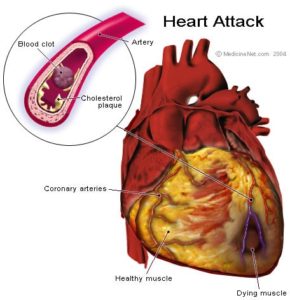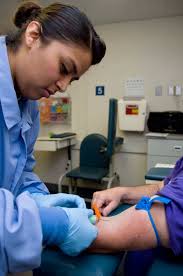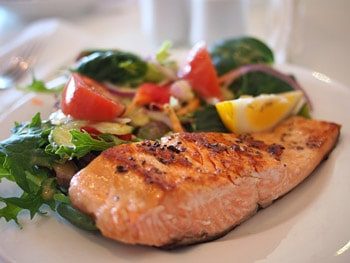
You probably hear people talk about weight loss and high cholesterol all the time, but did you know they are two sides of the same coin?
Knowing your cholesterol facts and the role your weight plays can help keep you be happy and healthy for longer.
The word cholesterol strikes fear into the hearts of many, but it helps if you know your cholesterol facts. Not all cholesterol is bad, in fact, good cholesterol is healthy for your body and provides many benefits.
Cholesterol is a substance found in all of the cells in your body and contributes to many different bodily functions. Your body naturally produces cholesterol to make Vitamin D and also hormones which help you digest your food.
While your body makes all of the cholesterol it needs, you also ingest cholesterol in the foods you eat. When you are ingesting a lot of extra cholesterol, especially “bad” cholesterol, it can build up in your arteries. When this happens, your body can’t transport as much oxygen-rich blood to the parts of your body in need.
First and foremost, let’s look at the two different types of cholesterol:
As we mentioned above, there are health risks associated with having high cholesterol that you definitely want to avoid. The buildup of LDL causes narrowing and hardening of the blood vessels and is known as atherosclerosis. This condition significantly raises your risk of a heart attack or stroke.
This isn’t the only danger high cholesterol poses to your body. Excess cholesterol can cause gallstones to form in your gallbladder, which leads to severe abdominal pain. You are also raising your risk of developing chest pain called angina, which occurs when your heart doesn’t get enough oxygen-rich blood pumping through it.

While cholesterol is something everyone should be aware of and get checked, it is more urgent for those who are overweight or obese.
There is a direct association between body weight and high cholesterol. Most people with high cholesterol eat a diet high in saturated fats and cholesterol. Many also get little or no physical activity.
Since these two lifestyle choices are also key factors that lead to obesity, it makes sense how high body weight and high cholesterol go hand in hand.
While it seems like making some easy changes to your diet and getting in your exercise would be a quick fix, this isn’t necessarily the case for obese individuals. “Obesity blunts your response to changes in the type of fat you eat,” explains Sarah Lewis, pharmacist and medical writer. “Obesity increases the amount of LDL cholesterol your liver makes. It also decreases clearance of LDL cholesterol from your blood.”
Let me translate: Obesity causes more BAD cholesterol to accumulate in your body and arteries!
Obesity may mean you are insulin resistant (one reason so many obese people develop type 2 diabetes.) Insulin resistance causes changes in your body that keep it from handling cholesterol the way it is supposed to.
These factors mean a simple diet change isn’t going to bring speedy results for obese individuals. But weight loss is still the best way to lower your cholesterol if you are overweight.
It’s just going to take time.
As Sarah explains, “Losing 5 to 10% of your body weight can improve your LDL cholesterol, triglycerides, and other factors for heart disease. Weight loss can help your body re-sensitize to insulin and reduce inflammation. As your weight decreases, your body starts to respond normally to changes in dietary fats.”
This talk of changing your diet to help with high cholesterol raises the obvious question, “What should I eat?”

Researchers at the University of California, San Diego School of Medicine asked themselves a similar question. “Should individuals reduce fat intake by replacing it with carbohydrates, or should they focus on unsaturated fats and cut saturated fats to help with cholesterol?”
Specifically the researchers looked at how to implement walnuts into a meal plan. Walnuts are high in polyunsaturated fats and can have an impact on cholesterol levels in insulin resistant individuals.
The study included overweight and obese adult women and divided them into three diet groups: low-fat and high-carbohydrate, low-carbohydrate and high fat, and walnut-rich high fat and low carbohydrate.
The study showed how all three groups experienced weight loss, with an average of 8% among all groups. However, the group that included walnuts in their diet saw the largest change in their cholesterol levels. The walnut-rich diet decreased the women’s bad LDL levels, while increasing their beneficial HDL levels.
“The weight loss may not put these women at their ideal weight, but it made a significant reduction in their risk of cardiovascular and other diseases,” says Cheryl Rick, principal investigator of the study.
For further benefits, individuals also need to be performing physical activity. When it comes to weight loss, you have to be burning more calories than you are putting in.
Cholesterol plays a role in everyone’s life, overweight or not. Whether you are young or old, heavy or thin, genetically predisposed or not. There are many misconceptions about cholesterol who is at risk for high cholesterol.
To maintain your cholesterol health remember to follow some simple steps. Pay attention to what you eat. Stick with a “heart healthy” diet that minimizes your intake of saturated fats. Make sure you’re getting your physical activity in.
And last, but not least, get your cholesterol checked by your doctor.
Sources:
The Effects of Obesity on Cholesterol Levels: Sarah Lewis, PharmD; 2019
Cholesterol Levels Improve with Weight Loss and Healthy Fat-Rich Diet: Yadira Galindo; 2016
Common Misconceptions About Cholesterol: American Heart Association; 2017.
This post is an eye opener for everyone. Reading about cholesterol and its affect on heart is scary.